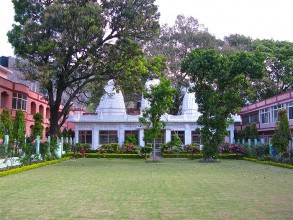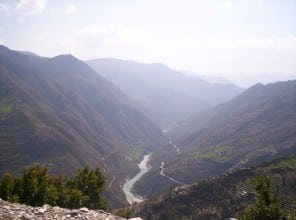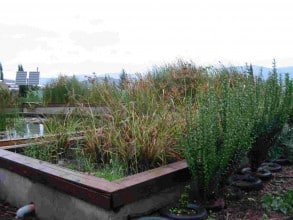Blending Hindu Faith and Ecological Ingenuity to Rejuvenate a Holy River in India
By Elana Frank for The Interfaith Center for Sustainable Development
Sometimes our best efforts to tackle environmental issues only focus on the short-term – which often leaves us with bigger holes to dig out of in the long run. That seems to be the case quite often with our region’s immediate need for water. Yet, conventional methods for extraction and purification tend to follow this dirty trend – exchanging clean water for sediment, heavy metals, and ooze. Phytotechnology is a relatively new and increasingly popular method that uses natural, plant-based elements to solve environmental problems like water contamination. Well sure, people have been doing this for years, you might say. But phytotechnology specifically addresses emergent issues of contaminant removal and storage – empowering the planet itself to help us clean up our messes. Ayala Water & Ecology, located in the north of Israel, uses this technology to address water pollution and contaminated run-off. The Ayala team developed a Natural Biological System (NBS) that utilizes a variety of plants, soils, and hydraulics to filter hydrocarbons, pathogens, grey water, agricultural sewage, and oils out of almost any ecosystem.
Eli Cohen founded Ayala Water and Ecology twenty-five years ago. Although he was always interested in water issues, he found that most conventional ways of addressing today’s water challenges use chemicals and machinery that ultimately create more harm than good. He was interested in discovering natural alternatives, which is how he came upon phytotechnology – a method that offers net positive results for water purification AND the environment, and takes less maintenance, less energy, and less money to implement. Ayala has worked on projects of many different sizes and in many different places, from a waste dumpsite in Tel Aviv to an entire valley in Plaine du Var, France.
Ayala’s most recent project is to clean up the Ganges River in India. The Ganges River is a main source of water in India and flows into many other tributaries and reservoirs and is extremely polluted. Aside from its ecological importance, the Ashram is dedicated to cleaning up the Ganges because of its spiritual significance as a holy site for Hindus.
To implement this NBS technology, Ayala is working with the, one of India’s principal spiritual institutes, located in Rishikesh. Swami Chidanand Saraswati, President and Spiritual Head of the Ashram, and Sadhvi Bhagawati Saraswati, President of Divine Parmarth Niketan Ashram Shakti Foundation based at the Ashram, are both members of the United Planet Faith & Science Initiative, a faith-science unity project co-organized by The Interfaith Center for Sustainable Development.
Sadhvi Saraswati is working with Ayala in bringing NBS technology to the Ashram because she was seeking an affordable, natural system to help the river return to its healthy, holy flow. With every project come new discoveries of ways to implement phytoremediation. Eli believes that through an open-minded attitude towards the earth’s vast resources and the technology’s infinite potential, this phytotechnology system could ultimately resolve pollution problems in any body of water. Together, the Ashram and Ayala are setting the trend: blending faith and science to purify our planet and quench the thirst of millions.










